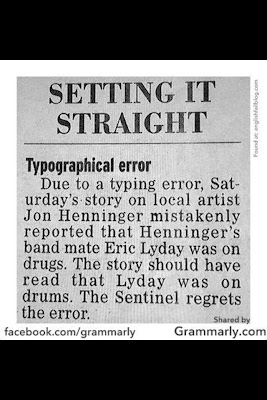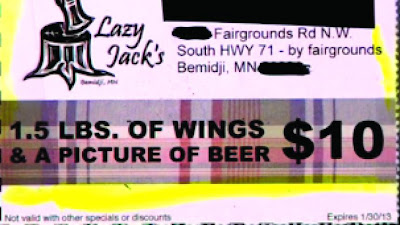Subscribe to Blog via Email
Archives
- December 2024
- November 2024
- October 2024
- August 2023
- June 2023
- April 2023
- March 2023
- February 2023
- January 2023
- December 2022
- September 2022
- August 2022
- July 2022
- June 2022
- May 2022
- April 2022
- March 2022
- February 2022
- January 2022
- December 2021
- November 2021
- October 2021
- September 2021
- August 2021
- July 2021
- June 2021
- May 2021
- April 2021
- March 2021
- February 2021
- January 2021
- November 2020
- October 2020
- September 2020
- August 2020
- July 2020
- June 2020
- May 2020
- April 2020
- March 2020
- February 2020
- January 2020
- December 2019
- November 2019
- October 2019
- September 2019
- August 2019
- July 2019
- June 2019
- May 2019
- April 2019
- March 2019
- February 2019
- January 2019
- December 2018
- November 2018
- October 2018
- September 2018
- August 2018
- July 2018
- June 2018
- May 2018
- April 2018
- March 2018
- February 2018
- January 2018
- December 2017
- November 2017
- October 2017
- September 2017
- August 2017
- July 2017
- June 2017
- May 2017
- April 2017
- March 2017
- February 2017
- January 2017
- December 2016
- November 2016
- October 2016
- September 2016
- August 2016
- July 2016
- June 2016
- May 2016
- April 2016
- March 2016
- February 2016
- January 2016
- December 2015
- November 2015
- October 2015
- September 2015
- August 2015
- July 2015
- June 2015
- May 2015
- April 2015
- March 2015
- February 2015
- January 2015
- December 2014
- November 2014
- October 2014
- September 2014
- August 2014
- July 2014
- June 2014
- May 2014
- April 2014
- March 2014
- February 2014
- January 2014
- December 2013
- November 2013
- October 2013
- September 2013
- August 2013
- July 2013
- June 2013
- May 2013
- April 2013
- March 2013
- February 2013
- January 2013
- December 2012
- November 2012
- October 2012
- September 2012
Categories
- abbreviations
- apostrophes
- articles
- Ask PTB
- Autocorrect
- brand names
- capitalization
- commas
- confusing words
- conjunctions
- contractions
- dashes
- dates
- definitions
- double negatives
- ellipsis
- Emphasis added
- font
- footnotes
- foreign words
- grammar
- grammar giggles
- headings
- holidays
- homophones
- hyphenation
- In The News
- infinitives
- italics
- legal assistant
- legal proofreading
- legal secretary
- misspellings
- money
- nonessential phrases
- numbers
- paralegal
- period
- plural
- possessives
- postscript
- prepositions
- professional titles
- proofreading
- proofreading resources
- punctuation
- question marks
- reflexive pronouns
- search and replace
- semicolons
- singular
- slashes
- spacing
- Spell check
- style guides
- Time
- Uncategorized
- underlining
- Words of the Month
- Words of the Week
Grammar Giggles Week – Puzzle Cube
Grammar Giggles Week – Gift Cards
Grammar Giggles – Too Bad It’s Not Candid Camera
I Feel Good But Not Well
I don’t get sick often, but every once in a while something comes along to kick my butt. The latest “cold” has done just that. Three days in bed, missing my personal blog post deadline, and missing a day of work later, I’m feeling semi-human and thought being sick opened a whole new topic!
Good and well are misused a lot. Good is an adjective.
- She did a good job on the project the boss gave her.
Well is usually used as an adverb with action verbs, but can be used as an adjective when referring to someone’s health.
- She ran well.
It is not proper, however, to say “She ran good” because “ran” is an action verb.
- He said he didn’t feel well when he woke up that morning.
Good can also be used with linking verbs. For instance in the response to “How are you?” it is perfectly acceptable to answer “I am good” when they are inquiring about your general status. If you are recovering from a long illness and someone asks how you are, saying “I am well” indicates to them that you are healthy.
To feel well means “to be in good health” and to feel good means “to be in good spirits.”
Once I get completely over this illness, I am hoping to be a healthy person. Healthy means to be in good health and healthful is to promote health (like healthful food).
One more illness-related set of words that are confused a lot are nauseous and nauseated. Nauseous means to induce nausea so a pile of something disgusting makes you feel nauseous, but if your stomach is upset, you feel nauseated.
So I am good, I feel well (at least better anyway), and I do not feel nauseated. Things are looking up!
Grammar Giggles – I’d Rather Have a Pitcher!
To Hyphenate or Not to Hyphenate: That is the Question
Another confusing proofreading issue is hyphenated words. This is particularly true when the words are sometimes hyphenated and sometimes not depending on how the word is used. There are, of course, rules regarding hyphenation.
- Always hyphenate ex, elect, and designate when attaching them to titles. For example “Ex-President Carter.”
- You can also use “then” before a title to indicate that the person was acting in that capacity at the time you are describing. Used in this way, it will be hyphenated when it would be confusing otherwise.
- Then Governor Mecham was impeached in Arizona. This could be read to mean that Governor Mecham’s impeachment happened next.
- Then-Governor Mecham was impeached in Arizona. This would be read to mean that Governor Mecham was acting governor at the time he was impeached.
- Family titles starting with grand (such as grandmother) are written without a hyphen; however, family titles starting with great (like great-grandmother) are written WITH a hyphen for each great (for instance her great-great-grandmother).
- When used as nouns, terms such as African Americans or French Canadians are not hyphenated. When they are used as adjectives such as African-American politicians or French-Canadian residents, they would be hyphenated.
- Fractions written out would be hyphenated, such as one-third and three-fifths.
- Compound numbers such as thirty-five and six hundred eighty-four should be hyphenated.
- An age that modifies a noun is hyphenated.
- My 40-year-old neighbor has three barking dogs.
- An age that is an adjective phrase that comes after the noun is not hyphenated
- My granddaughter will be 13 years old soon.
- The twins are two years old.
The biggest hyphenation issue that I see consistently is third party. Hyphenating third party depends on how it is used.
- When third party is used as a modifier, it should be hyphenated.
- The bill for the third-party vendor was past due.
- It would NOT be hyphenated when not used as a modifier.
- The bill was sent to the third party for payment directly to the vendor.
For an easy test to see if the phrase is a modifier that requires a hyphen, try each word alone with the noun. If it doesn’t make sense, you need a hyphen. If it DOES make sense, then you do not use a hyphen:
- In the example above, third vendor does not make sense so third-party vendor should be hyphenated.
- She prefers high-quality clothing. High clothing does not make sense so high-quality should be hyphenated.
Grammar Giggles – Happy Easter!
Grammar Giggles – Would You Like Hors D’oeuvres With That?
On the executive floor of a hotel I recently stayed in, this sign was on the lounge door. I had to look a couple of times because while it didn’t look right, I (and obviously others) have a difficult time spelling the word correctly. A quick Google search confirmed that it was, indeed, incorrectly spelled.
The Cost of NOT Proofreading
I read an article recently about a typo that cost the New York City transit system $250,000 to replace maps that had a typo in the minimum cost of the pay-per-ride card. Paying attention and proofreading are valuable skills in the marketplace. I wondered what other errors might have cost businesses and government agencies money and embarrassment that could have easily been prevented. Here are just a few examples that I found in my research:
- Proofreading errors have been made throughout history. The 1632 edition of the King James Bible left a word out that completely changed the meaning of the seventh commandment when that edition read “Thou shalt commit adultery.” The printer was fined for the mistake and all copies of the Bible with the error had to be destroyed.
- Tattoo artists are sometimes sued for negligence in misspellings that are permanently inscribed in flesh. This happens much more frequently than one would think.
- The University of Wisconsin gave its 1988 graduates diplomas that said “University of Wisconson.”
- Air Canada used luggage stickers reading “This Baggage Has Been X-Rated at Point of Origin.”
- Australian Publishing Company Penguin Group had to reprint a cookbook at a cost of $18,500 because a recipe for pasta called for “salt and freshly ground black people.”
- A trader on the Toyko stock exchange in 2005 was too quick to place his order and traded 610,000 shares at 1 yen each instead of 1 share at 610,000 yen. That mistake cost his firm $18.7 million.
- In 2010, a Chilean man authorized the production of 1.5 million 50-peso coins that misspelled the country’s name as “C-H-I-I-E.” The managing director of the Chilean mint was fired once the mistake was discovered. All 1.5 million of those coins remain in circulation to this day.
- In June 2010, the gift shop at Australia’s Parliament House unpacked a delivery of mugs that had been ordered to celebrate Barack Obama’s visit to Australia. The mugs, however, welcomed “Barrack Obama” in large letters. They lost approximately $2,000 in expected revenue.
- A new water tower in the city of Stoughton, Wisconsin, was painted with the word “Stoughon.” The contractor fixed his error free of charge.
- A clerical error in 2006 may have cost an Italian airline $7.72 million USD. They advertised a flight from Toronto to Cyprus for $39 instead of $3,900. By the time they discovered the error, 2,000 tickets had been sold and the airline had to honor the price.
Everyone is busy, but slowing down and taking the time to make sure what you are doing is correct is obviously well worth it.



 Follow
Follow
.jpg)




